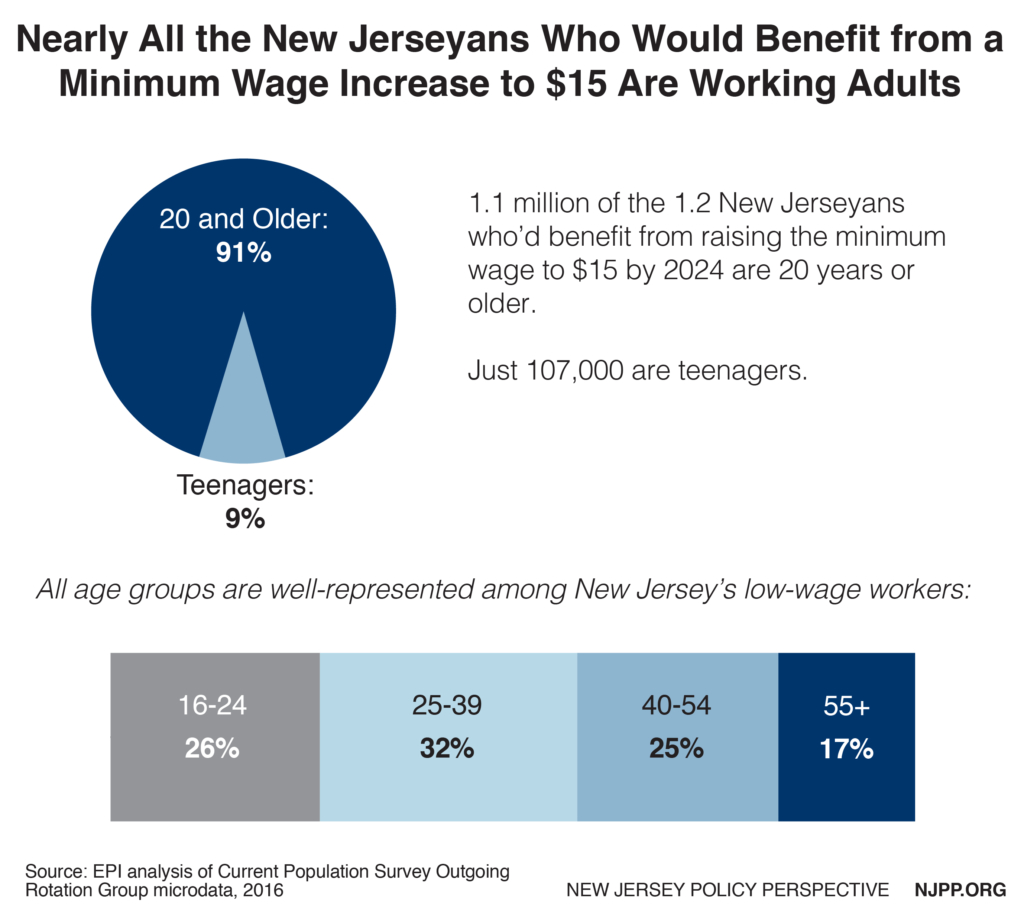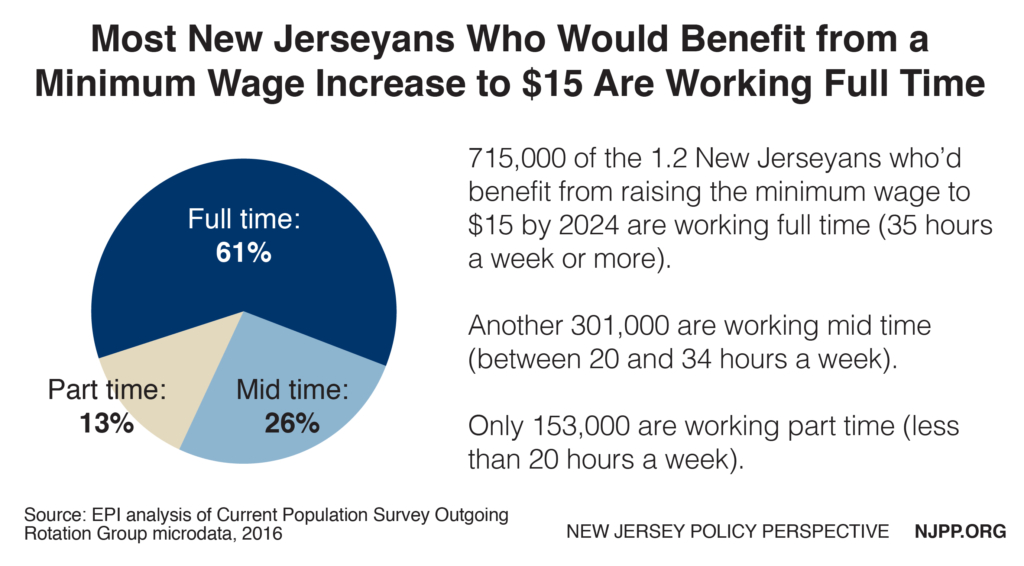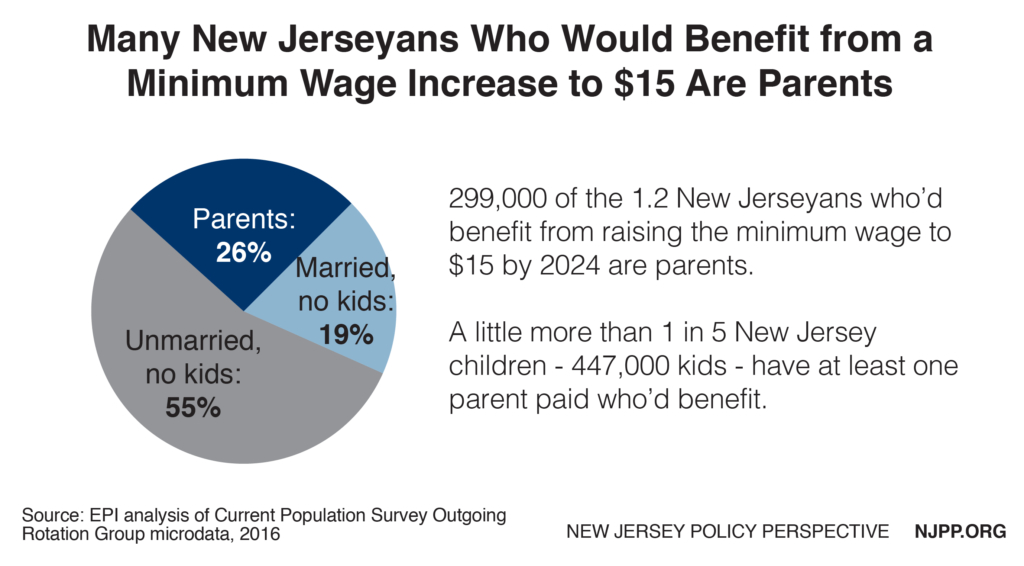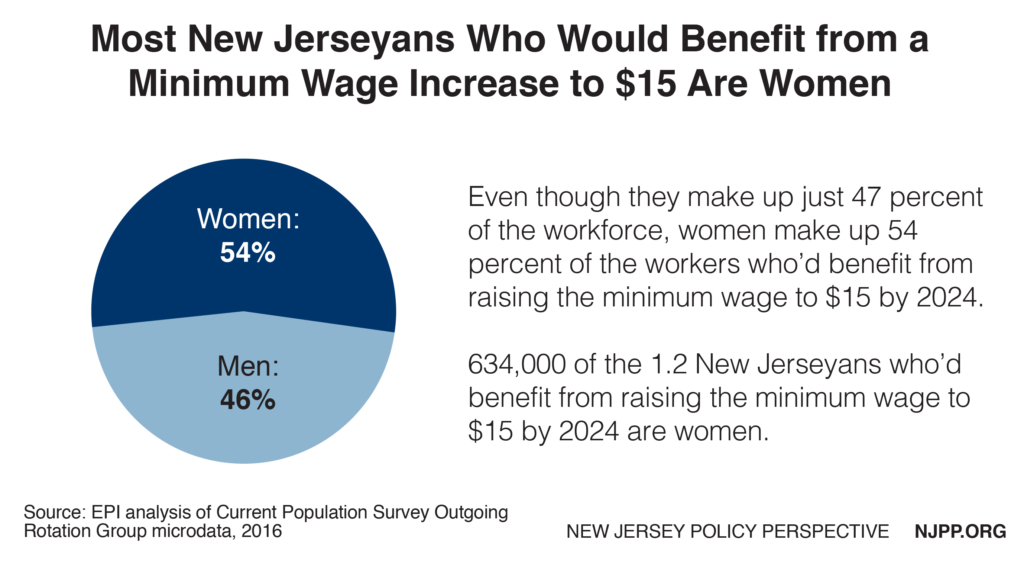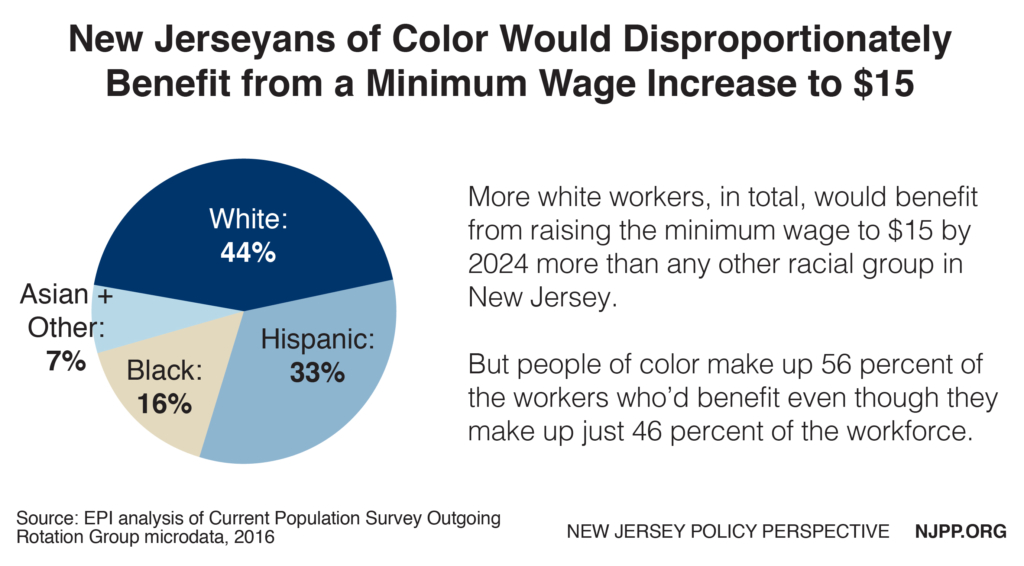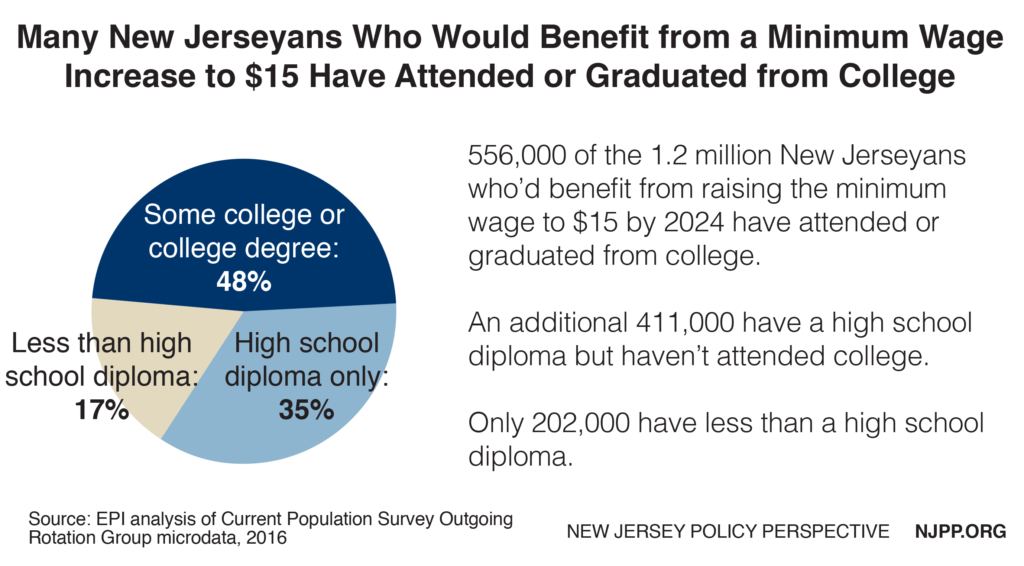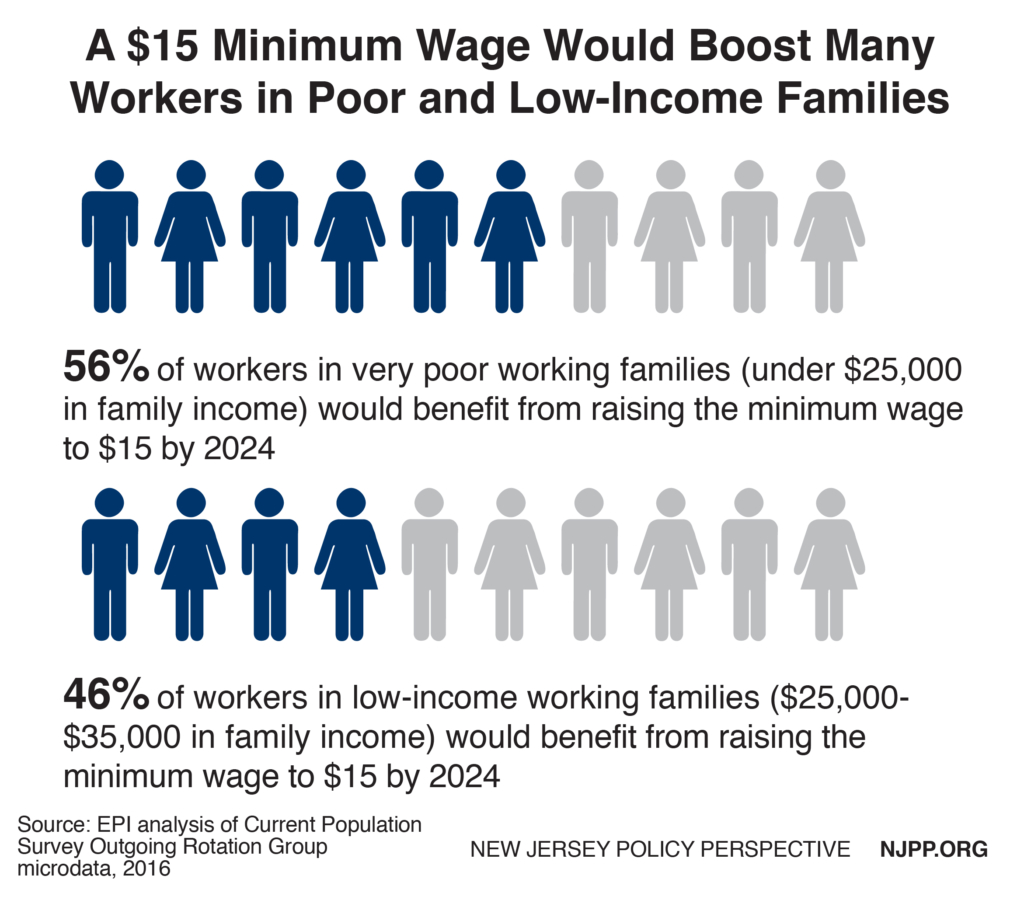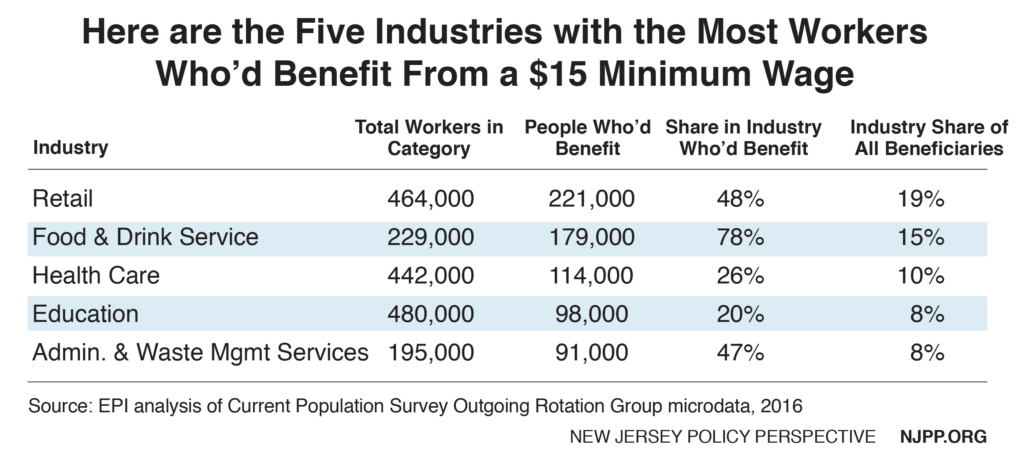By Brandon McKoy, Policy Analyst, New Jersey Policy Perspective and David Cooper, Senior Economic Analyst, Economic Policy Institute
To read a PDF version of this report, click here.
Increasing the minimum wage to $15 an hour by 2024 would boost the pay of 1.2 million New Jersey workers – or 28 percent of the state’s workforce. The wage increase would help a diverse group of workers who aren’t paid enough to make ends meet, improving their chances of getting by – and, often, providing for their families – in high-cost New Jersey.[1]
New Jersey’s current minimum wage of $8.44 an hour is woefully insufficient. At that level, a full-time single adult minimum-wage worker barely earns two-thirds of what it took to scrape by in the state in 2014, according to the United Way of New Jersey’s latest cost-of-living analysis.[2] For a household budget that’s slightly more sustainable (and includes modest amounts for higher-quality housing, transportation and some savings), a full-time single adult worker would’ve needed to earn $18.94 per hour – or $39,393 per year – in 2014.[3] While raising the wage to $15 is necessary, it’s important to note $15 in 2024 is equivalent to $12.46 in 2016 dollars,[4] showing a significant erosion of value as the wage slowly phases in.
Last week, the Raise the Wage Act of 2017 – which would increase the federal minimum wage to $15 by 2024 – was introduced by Senators Bernie Sanders and Patty Murray, and Representatives Keith Ellison and Bobby Scott. The 1.2 million New Jersey workers helped by this bill include 688,000 who would be directly affected by the increase and 481,000 who would be indirectly affected (these are workers who earn as much as 15 percent more than the new minimum wage and would likely see their pay increase as well).
Over the phase-in period of the increases, the rising wage floor would generate $4 billion in additional wages, which would ripple out to the families of these workers and New Jersey communities. Because lower-paid workers spend much of their extra earnings, this injection of wages would help stimulate the economy and spur greater business activity and job growth.
Younger workers and some disabled workers would also see a significant increase in their take home earnings as the bill phases out both the youth minimum wage – which allows employers to pay workers under 20 years of age a lower wage for their first 90 days of work – and the subminimum wage for workers with disabilities that allows some employers to pay disabled workers a lower wage.
The bill would raise the minimum wage in eight steps until it reaches $15 in 2024. Then, starting in 2025, the minimum wage would be tied – or “indexed” – to the national median wage so that future adjustments would be based on growth in the median wage. The Raise the Wage Act of 2017 would also slowly increase the tipped minimum wage until it reaches the same level as the minimum wage for all other workers.
Endnotes
[1] Economic Policy Institute analysis of 2016 Current Population Survey Outgoing Rotation Group microdata. Note: The total workforce is estimated from the CPS respondents who were 16 years old or older, employed, but not self-employed, and for whom a valid hourly wage is either reported or can be determined from weekly earnings and usual weekly hours. Directly affected workers would see their wages rise as the new minimum wage rate will exceed their current hourly pay. Indirectly affected workers have a wage rate just above the new minimum wage (between the new minimum wage and 115 percent of the new minimum). They would receive a raise as employer pay scales are adjusted upward to reflect the new minimum wage. For more on the methodology, visit http://www.epi.org/publication/15-by-2024-would-lift-wages-for-41-million/
[2] United Way of Northern New Jersey. 2016 ALICE Report. Fall 2016.
[3] NJPP Analysis of 2016 ALICE Report, calculating average of annual stability budget for single adult across all counties in New Jersey.
[4] Economic Policy Institute, Raising the minimum wage to $15 by 2024 would life wages for 41 million American workers, April 2017. Figure A.

